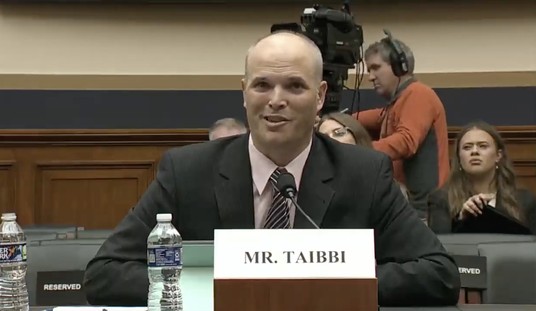“A defamation suit against Netflix from the head of a Cuban exile organization accuses the streamer of distributing propaganda for Cuba by portraying him as a terrorist and drug trafficker in Olivier Assayas’ political spy thriller Wasp Network,” wrote the Hollywood Reporter this week.
“The Film is an obvious attempt to rewrite and whitewash history in favor of the communist Cuban regime and is factually inaccurate,” the complaint states.
“Brothers to the Rescue leader Jose Basulto alleges Netflix and Assayas falsely depicted him as a puppet of the United States and traitor to Cuba while romanticizing the criminal activity conducted by Fidel Castro’s regime.
“The defamation action is the second from a Cuban exile arguing that the movie falsely maligns Cuban exiles as terrorists and otherwise unsavory characters. Ana Martinez sued in 2020 over her character, played as a promiscuous “party girl” by Ana de Armas, in the movie.”
The film was filmed partly in Cuba itself, you see, and as the suit explains: “Cuba’s communist party requires the ‘script, storyboard or synopsis of the project’ to be submitted and expressly states that any project that paints Cuba in a negative light will be denied a permit,” the complaint reads. “Thus, filming the true and accurate story was never even a possibility.”
Of course this submission policy is standard operating procedure for Soviet-style totalitarian regimes. Problem is, many people nowadays forget that Cuba qualifies as one with bells on. The identical policy no doubt applied to Stephen Soderbergh’s “Che.” But nobody in Hollywood seemed to bat an eye at such interference with “artistic integrity.” In fact, “Che” leading man and producer of Benicio Del Toro publicly thanked the Stalinist Castro regime for their unstinting help with producing the film, as was revealed right here at Townhall.
Recommended
Earlier, Robert Redford was required to give a secret private screening of his now famous Motorcycle Diaries to Fidel Castro and Che Guevara’s widow before releasing the film. Only after the approval by these two Stalinists was the movie released by this adamant proponent of artistic freedom.
Naturally a film full of malicious lies about Cuban exiles and jointly produced by KGB-tutored Stalinist apparatchiks got a rousing thumbs-up from The New York Times. “Olivier Assayas’s latest picture, “Wasp Network” (streaming on Netflix), looks like his most conventional work,” read the film review by The New York Times upon its release in 2020. “But it also pushes this theme to a dizzying, eventually exhilarating, extreme…There are times in which “Wasp Network” feels like a John le Carré tale drenched in Miami sun, or even a serious-minded “Top Gun” variant….(the movie) is based on the nonfiction book “The Last Soldiers of the Cold War” by Fernando Morais…”
Among the Brazilian Morais’ more noteworthy proclamations:
“Fidel Castro was the greatest leader of the 20th Century! A blessing for the world!” How could The New York Times possibly pan a movie with such credentials?
In brief, the movie glorifies KGB-trained Cuban spies who—as the Morais book tells it—infiltrated Miami in a desperate attempt to thwart terrorism by Cuban exiles. The innocent and beneficent Castro regime had no choice, you see, considering its sole historic rationale is providing free health care, while somehow surviving a diabolical U.S. “blockade.”
In fact, Castro’s KGB-trained terrorists (members of “The Wasp Network”) were convicted by a U.S. federal jury of everything from espionage to conspiracy to commit murder, and these convictions were upheld all the way to the U.S. Supreme Court. Here’s what happened:
On September 14, 1998, the FBI uncovered a Castro spy ring in Miami and arrested 10 of them. Four others managed to scoot back to Cuba. These became known as the “Wasp Network,” or “The Cuban Five” in Castroite parlance. According to the FBI’s affidavit, the 26 charges against the convicted Castro-spies championed in the movie were:
•Gathering intelligence against the Boca Chica Air Naval Station in Key West, the McDill Air Force Base in Tampa and the headquarters of the U.S. Southern Command in Homestead, Fla.
•Compiling the names, home addresses and medical files of the U.S. Southern Command’s top officers, along with those of hundreds of officers stationed at Boca Chica.
•Infiltrating the headquarters of the U.S. Southern Command.
•Sending letter bombs to Cuban-Americans.
•Spying on McDill Air Force Base, the U.S. armed forces’ worldwide headquarters for fighting “low-intensity” conflicts.
•Locating entry points into Florida for smuggling explosives.
The Wasp Network also infiltrated the Cuban-exile group Brothers to the Rescue (portrayed in the movie as drug-runners and terrorists.) In fact, these Cuban exiles flew unarmed planes to rescue Cuban rafters in the Florida straits, also known as “the cemetery without crosses.” The estimates of the number of Cubans dying horribly in the “cemetery without crosses” run from 30-55,000. Brothers to The Rescue risked their lives almost daily, flying over the straits, alerting and guiding the Coast Guard to any balseros, and saving thousands of these desperate people from joining that terrible tally. (Prior to Castroism, by the way, Cuba was swamped with more immigrants per-capita than the U.S., including during the Ellis Island years.) So you can imagine how the Cuban exodus embarrasses the Castro regime and its huge network of (unregistered) propaganda agents in the U.S.
By February of 1996, Brothers to The Rescue had flown 1,800 of these humanitarian missions and helped rescue 4,200 men, women and children. That month members of the Wasp Network passed to Castro the flight plan for one of the Brothers’ humanitarian flights over the Cemetery Without Crosses.
With this info in hand, Castro’s Top Guns jumped into their MiGs took off and valiantly blasted apart (in international air space) the lumbering and utterly defenseless Cessnas. Four members of the humanitarian flights were thus murdered in cold blood by communist spies glorified in the movies. Three of these murdered men were U.S. citizens, the other a legal U.S. resident. Again, these murdered Americans are the ones portrayed as “terrorists” by the movie hailed by The New York Times.
In fact, the propaganda qualities of the film were blatantly obvious even to reviewers who— unlike your humble servant—lack an anti-communist “axe to grind.” To wit:
“It’s unusual for a Western film to present spies for Fidel Castro as the heroes. And that novelty, alas, is one of the few selling points of “Wasp Network.” (Alonso Duralde, movie reviewer for Movieline, MSNBC, Salon, The Wrap, among others.)
“The Cuban regime opened all the doors for us” (to shoot the movie) said Director Olivier Assayas, who lived in Havana for half a year to make the movie. “It was extraordinary because it was the first time that the Cubans opened the doors to have a filmmaker explore their contemporary political history.” (Untrue–totalitarian Cuba’s doors were opened wide for Benicio Del Toro and Steven Soderbergh to make their propaganda film “Che.”)
It must be quite an honor for director Assayas to get the enthusiastic backing and cooperation for his film of the Stalinist regime that jailed, tortured and exiled the most filmmakers in the modern history of the Western Hemisphere–and criminalized artistic freedom.
As mentioned earlier, the suit sites Stalinist Cuba’s own regulations expressly stating “that any project that paints Cuba in a negative light will be denied a permit,” to film in the country. In this case the regulation applies to a movie production company. But those knowledgeable about Cuba who watch (usually in rage or amazement) “reporting” from Cuba by the likes of CNN, ABC, CBS, NBC, PBS, etc. know it also applies to “news” networks.

























Join the conversation as a VIP Member